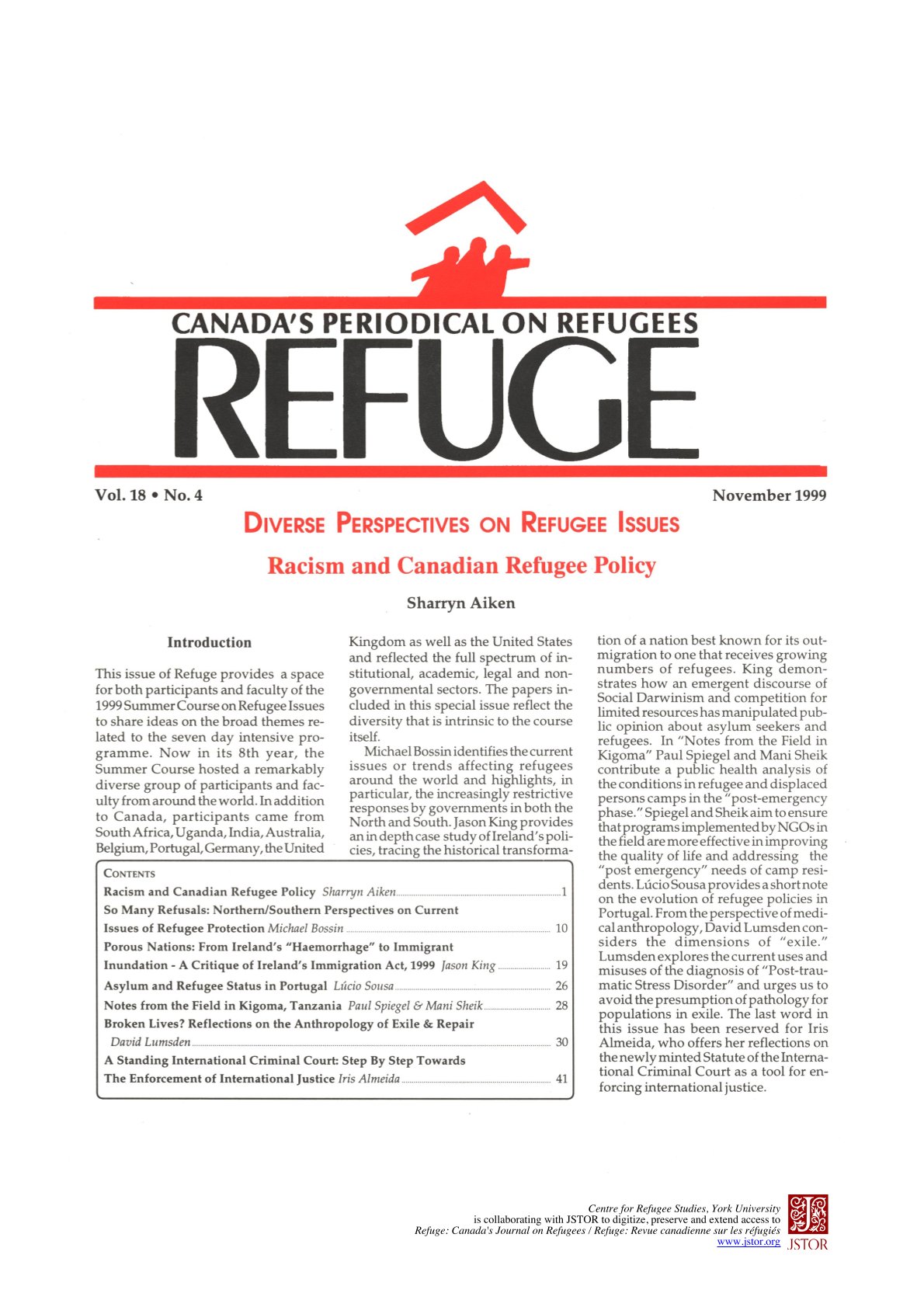Broken Lives? Reflections on the Anthropology of Exile and Repair
DOI:
https://doi.org/10.25071/1920-7336.22032Keywords:
exile, forced displacement, medical anthropology, resilienceAbstract
This article provides a rethinking of the concept of exile and promotes its utility regarding both the externally and the internally displaced. It does so from the perspective of Medical Anthropology. A number of variables affecting and shaping the morality, performance, nature and outcomes of exile are identified. Edward Said's views are discussed; but, must exiles always and forever be viewed or be felt as 'broken lives'? The article argues against a naive presumption of 'universalism' to exile's embodied experience and response; instead, the specificities of cultural meaning systems must be taken into account. Further, it argues against analysts' common presumption of pathology and 'posttraumatic stress disorder' among exiles; instead, evidence for 'agency' and 'resilience' in exile populations' health and coping through time must also, and explicitly, be recognized. Finally, where lives are 'broken', the potential of Truth Commissions and 'forgiveness' to be practices of collective repair is noted. Examples are drawn from Africa, Bosnia, Cambodia, Chile, China, Holocaust survivors, and Tibet.
Metrics
Downloads
Published
How to Cite
Issue
Section
License
Copyright (c) 1999 David P. Lumsden

This work is licensed under a Creative Commons Attribution-NonCommercial 4.0 International License.
Refuge authors retain the copyright over their work, and license it to the general public under the Creative Commons Attribution-Non Commercial License International (CC BY-NC 4.0). This license allows for non-commercial use, reproduction and adaption of the material in any medium or format, with proper attribution. For general information on Creative Commons licences, visit the Creative Commons site. For the CC BY-NC 4.0 license, review the human readable summary.







